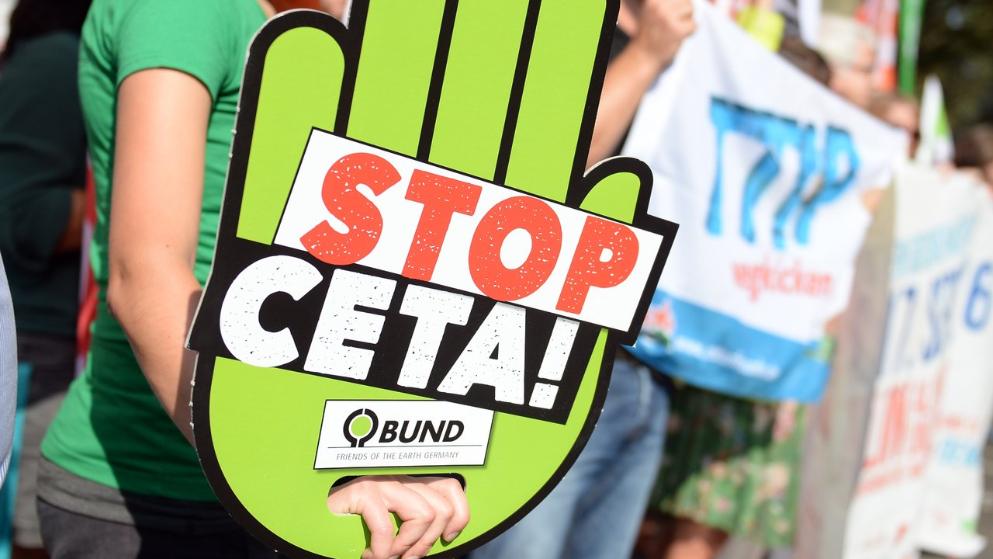German farmers divided over EU-Canada trade deal
EurActiv | 30 September 2016
German farmers divided over EU-Canada trade deal
By Daniel Mützel
Despite protests around Europe, the EU still wants to conclude the CETA agreement with Canada within the next five weeks. The German agricultural sector is divided in its opinion of the deal: large farms relish the advantages and small enterprises fear the competition. EurActiv Germany reports.
On 17 October, the EU and Canada want to vote on adopting the CETA agreement. Apart from a few amendment requests and pushback from individual member states, it seems like CETA is inevitable. Civil society and opposition party protests against the deal look doomed to failure.
Although German farmers have participated in anti-CETA demonstrations, the sector is still divided on the agreement. The German Farmers’ Association (DBV), which represents about 90% of German farmers, has highlighted the importance of the Canadian market to German exports.
The association has admitted that there will be challenges from the increased competition brought by CETA, but maintains that there are more opportunities to be had from opening up markets.
Milk and meat
The most controversial issues at play in the sector are to do with the milk and meat markets. Unlike most other tradeable goods, which are often traded duty-free across the Atlantic, the EU and Canada both levy above average tariffs on milk and meat.
European cheese, for example, is currently hit with a 245% tariff, on average. The EU has countered with a 37% charge on Canadian pork and a massive 407% tariff on beef. The tariff for more other goods ranges between 2% and 3% on average.
Methods used to safeguard these “sensitive products” are not eliminated totally by CETA, but have been significantly scaled back. Tariff rate quotas will have a significant impact on European milk and Canadian meat.
Many farmers fear that high tariff rates would mostly benefit larger companies, which would be better placed to survive in a liberalised market.
The consortium of traditional farmers (AbL) expects the meat sector to come under “considerable price pressure” from Canadian imports. While meat producers could hope for increased profits, “small farmers could die out”.
Even though the DBV welcomed CETA in principle, it has admitted that it anticipates “turmoil in the meat market”. Domestic producers will come under additional competitive pressure, experience “structural adjustments” and a drop off in production could be the result.
Many farmers also fear that CETA could be a way for genetic engineering to make its way in through the backdoor.
Irreconcilable positions
Essentially, both parties have irreconcilable positions on the issue. In Canada, if research shows it causes no harm, then the product can be approved. In the EU, the precautionary principle applies and genetically modified crops can be banned even if there are only negligible doubts about safety.
CETA critics like the AbL now fear that genetically engineered plants could make their way onto the European market, on the basis of Article 25 of the agreement, which deals with cooperation on biotechnological matters.
The deal’s detractors also fear that the EU institutions will eventually cave in, through fear of not meeting its obligations, and open up the bloc to GM foodstuffs.
For example, the Canadian soy association recently wrote to European Commission President Jean-Claude Juncker, asking the executive to implement its “commitments under the CETA agreement”. The Commission in turn promised to deal with it “as soon as possible within the defined requirements of the EU’s approval structure”.
Whether the EU will defend their safeguarding procedures or gradually wilt under the pressure exerted by an in-force CETA deal remains to be seen. But it seems very likely that there will be fierce disagreements about the introduction of GM crops into the EU.






